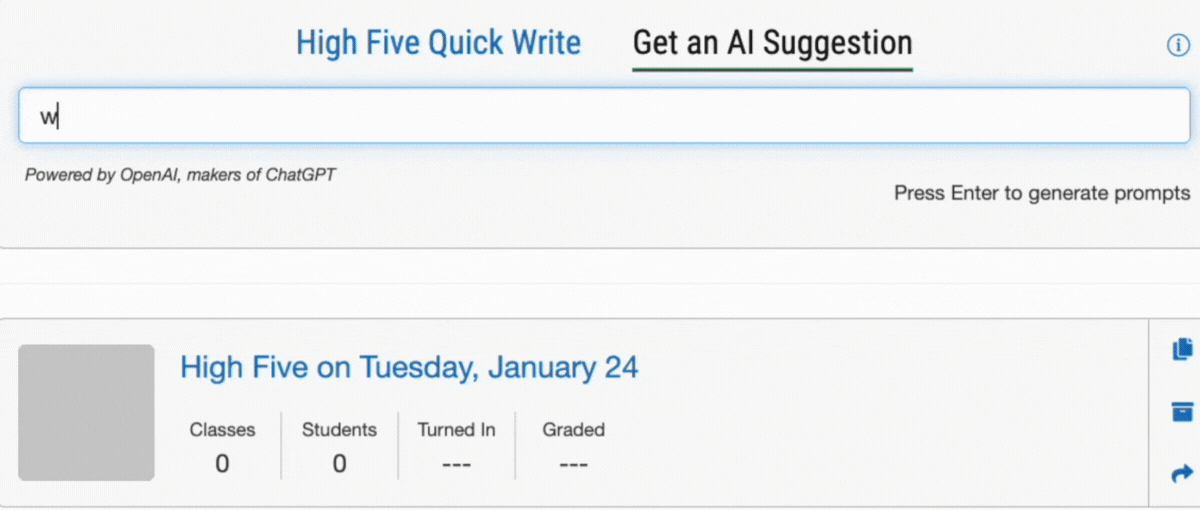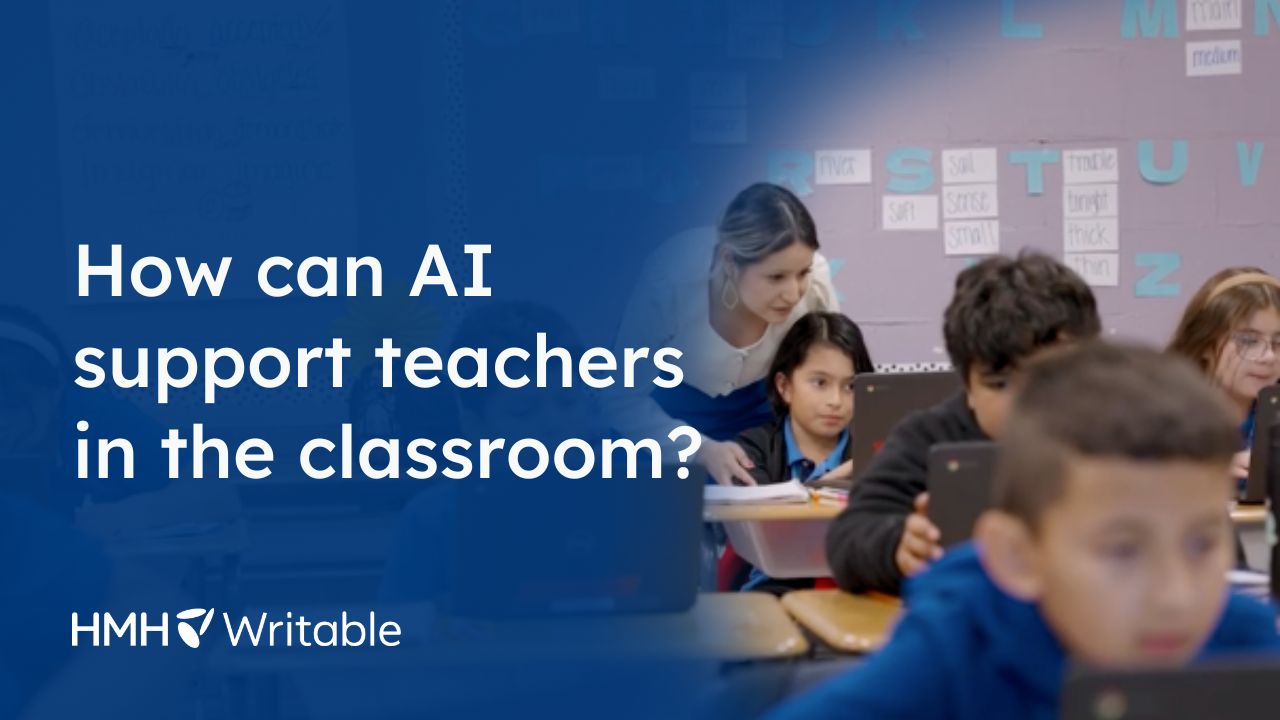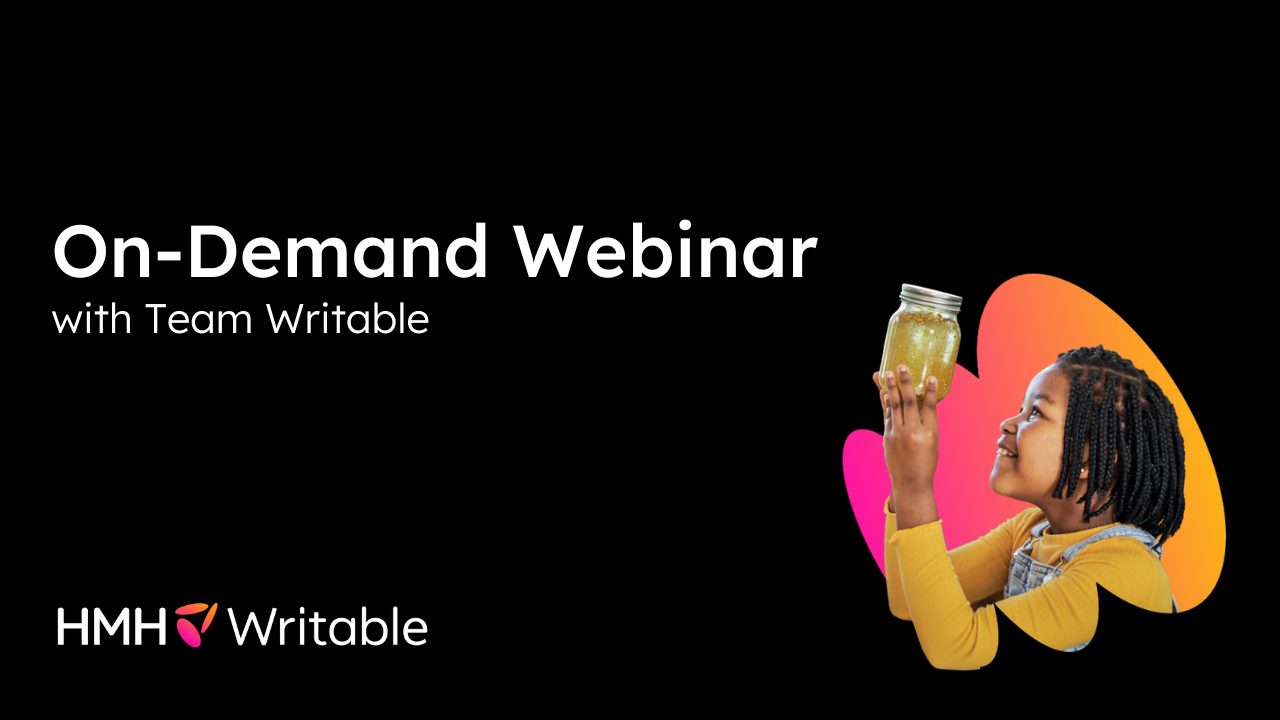Writing is thinking, and writing is communication. Our written words in resumes, letters, emails, and texts are often our first introduction to life’s opportunities, and our well-articulated ideas are our high-value contributions to the world. At Writable, we believe writing is an essential part of expressing thinking, and our mission is to help teachers apply research-backed pedagogy to grow great writers. In the past month, many of you have seen the hyperbolic news stories about ChatGPT and wondered how it will affect our classrooms. Writable has already begun the journey to harness these emerging technologies to further our mission while also ensuring that we maintain academic integrity.
A Personal Anecdote
ChatGPT is a next-level assistive technology, and I will start with a personal anecdote about how a much simpler technology, spell check, helped me to grow. At the start of middle school, I was an atrocious speller, failing writing assignments and spelling assessments. Then came spell check, and I was suddenly passing writing assignments, but surprisingly, the assistive technology also provided the repetitions and practice I needed to help me learn to spell. With ChatGPT, we now have an assist that is so powerful that students can seemingly skip the productive struggle of thinking about and communicating their ideas. Nonetheless, a modern education must work in concert with technologies like ChatGPT to help students get the intellectual repetitions they need to grow just like I got with spell check. ChatGPT can let students quickly work with a lot of different ideas, so they can synthesize them into deeper learning, but we need to ensure that students do in fact work with the material to make it their own.
Academic Integrity Is Possible
Fortunately, there are solutions that will provide teachers with the oversight they need to hold students accountable for going through the thinking and communicating process that is essential for their growth. The fingerprints on K12 student writing versus AI writing look very different. Writable already provides multiple types of AI assistance and similarity scores to previously published works. We are working with our partners, such as Turnitin, to analyze writing fingerprints and alert teachers to AI-generated writing. Additionally, when students write on Writable, we see behavioral patterns in how they copy, paste, type, and delete text. These patterns provide “thinking signals”, and when combined with the writing fingerprints, we can provide teachers with even more detailed clues about their students’ generative thinking and alerts where academic integrity is in doubt.
Supporting Teacher Creativity
Moving beyond the fears behind ChatGPT, we can leverage the technology to fulfill our mission to help grow great writers. Six years ago, we began our journey to help teachers address the 27% proficiency in K12 student writing. This week we are launching the first of several features focused on helping teachers assign daily writing so students get their needed repetitions. Writable’s new AI prompt generator allows teachers to enter “Call of the Wild chapter 5 setting,” and the AI generates multiple suggested prompts, including one that says, “What is the significance of the Yukon River in Chapter 5 of Call of the Wild? How does the setting affect Buck’s development?” In future releases, we will expand on this functionality to accelerate authoring a wide range of assignments where the teacher specifies the topic, and the AI accesses student data and a learning progression to tailor suggestions to meet their students’ developmental needs.

Faster, Personalized Feedback
Beyond using ChatGPT to aid in assignment creation, we see great opportunity in applying ChatGPT into the feedback process, adding actionable, targeted feedback during revision, when students are still open to changing their thinking and writing. AI can help us deliver augmented intelligence to provide the historical context that helps teachers to quickly personalize their feedback. Through personalizing feedback, we believe the technology has the power to strengthen teacher/student relationships and accelerate student growth.
Writable focuses on the intersection between teacher instruction and student feedback – delivered in a practical way for busy teachers – and this is where we see the sweet spot for AI technologies in our roadmap. We recognize that introducing teachers to effective pedagogy is not enough; we need to shave minutes from every move the writing research asks a real-world teacher to make. Saving 1 minute across 150 students turns into 2.5 hours of a teacher’s time.
Our Commitment
Over the days and years ahead, Writable will support our teachers with innovative tools that hold students accountable for driving their growth. Education publishers and technologists like Writable have a responsibility to change the software – but also the professional learning – required to help empower teachers to scale their impact. AI has the potential to make this the golden age of teaching, where each educator will impact more lives than ever before. Together, we can leverage tomorrow’s artificial technologies to make education more personal and human than it has been for the last 30 years.
P.S. Are you using ChatGPT in your school or classroom? Let us know how how it’s going, or how you hope to use it in the future!

Are you new to Writable or curious to learn more? Create a free teacher account, check out our pricing, or schedule a personalized demo!



